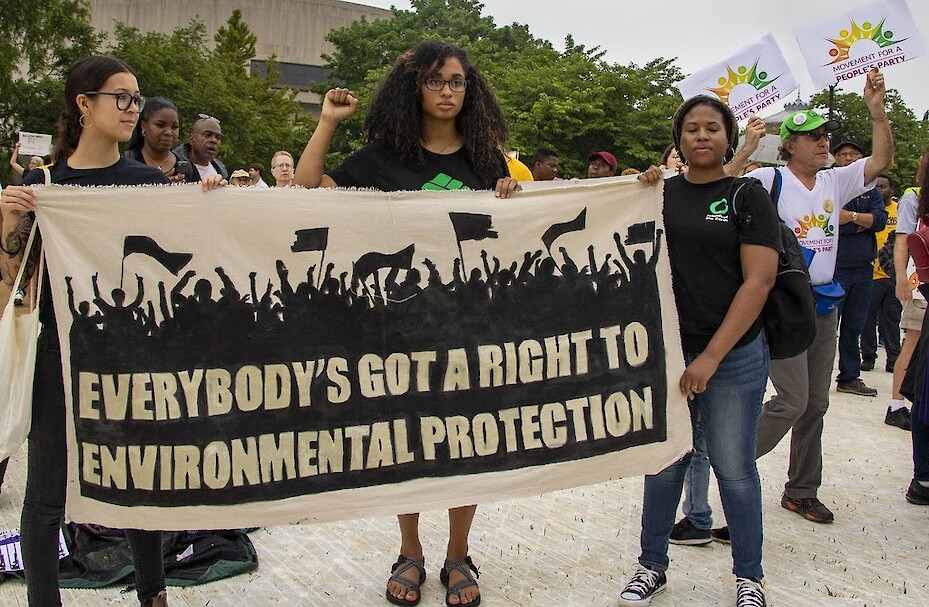Community Involvement is Vital for Environmental Justice
Chelsea Richardson ·Last week we wrapped up our class for the semester, and in that class we had stakeholders visit to discuss what we have developed thus far for the Chesapeake Bay environmental justice (EJ) report card. The stakeholders included Fred Tutman from Patuxent Riverkeeper, Brooke Landry from the Department of Maryland Natural Resources, and Lauren Paulet and Bob Summers from Blue Water Baltimore. Throughout the one hour discussion with them there was one particular thing that stuck with me the most, they all stated there needs to be community involvement if environmental justice issues want to be resolved!

Fred Tutman mentioned that organizations should engage with impacted communities experiencing environmental injustice and that communities should be a part of the decision-making. When I was doing research for the coastal flooding indicator, that will be a part of the EJ report card, I stumbled upon an article by Portland State University that echoed the same thing as Fred. The article, Coastal Flooding Study Finds Trust-Building, Power-Sharing key for Environmental Justice, chronicles how ranchers, politicians, and scientists came together to determine how to prevent flooding in the coastal town of Tillamook, Oregon. A third-party mediation group, Oregon Solutions, was brought in to work with the various stakeholders and to create a flood mitigation strategy. The mediation group was brought in because in the past many of the locals and ranchers felt like the federal money being put into projects like coastal flooding was just being wasted. With a collaborative effort they were able to develop a flood mitigation proposal called a “landowners alternative,” where the ranchers were compensated for any of the land they lost as a result of an ecologically restored salt marsh being built (Portland State University, 2020). This is just an example of why community engagement is important for EJ to be successful.
Going off of the Tillamook, Oregon case where a third party was used to mediate between the locals and state/federal agencies, Brooke Landry said that she is very thankful for her Riverkeeper colleagues because they are vital in helping her and her department to reach out to local communities. I think if state and federal agencies want to build trust in underprivileged communities,where trust can oftentimes be non-existent, it may be beneficial for the agencies to have third-party facilitators involved. These facilitators can range from community leaders, faith-based institutions, groups like the Patuxent Riverkeepers, all the way to mediators from an environmental Alternative Dispute Resolution (ADR) agency. The neutral party can act as a liaison between the community and the personnel from the agency and help sustain a productive dialogue to find a resolution for the EJ issue at hand.
The last statement I want to highlight from last week’s class was from Bob Summers, he said that there is a “need to bring privileged and Black and brown communities together” and I couldn’t agree with this more. EJ shouldn’t be a fight for only communities of color or the poor, there’s a need for privileged communities to fight with them. Underprivileged groups aren’t solely responsible for the environmental hazardous conditions or global warming, so why should they fight alone for a healthy and safe environment? We ALL are responsible for the condition of environmental health and we ALL should come together to find solutions to try and rectify what we’ve created.
To finish off this post, I think it’s critical that impacted communities are involved in the next stages of the Chesapeake Bay EJ report card process, so that the process can be more effective. I wish Bill, Vanessa, and anyone who participates in this report card the best of luck, and I look forward to seeing what is developed!
References:
Portland State University. (2020). Coastal flooding study finds trust-building, power-sharing key for environmental justice. Phys.org. Retrieved from http://phys.org/news/2020-08-coastal-trust-building-power-sharing-key-environmental.html